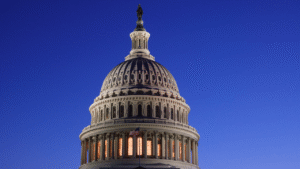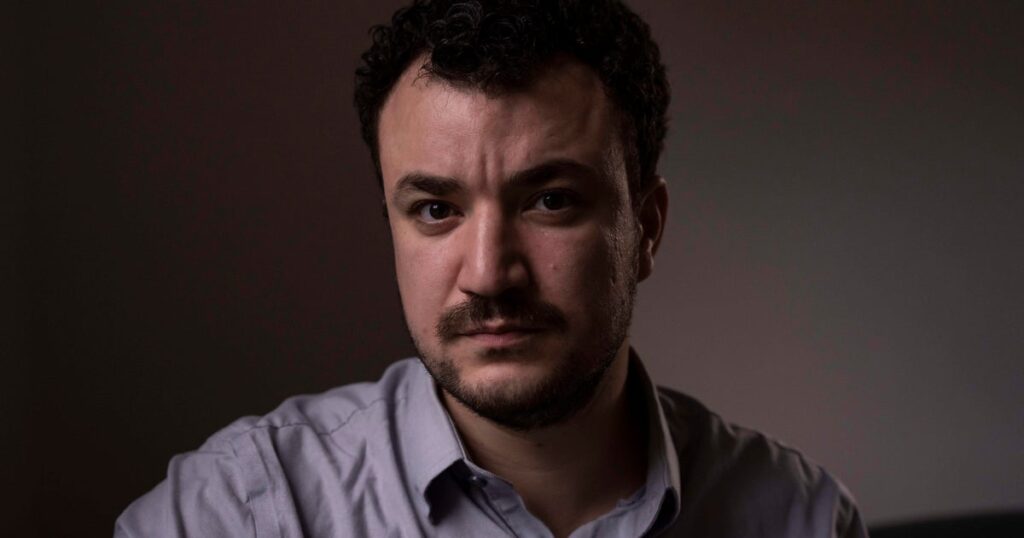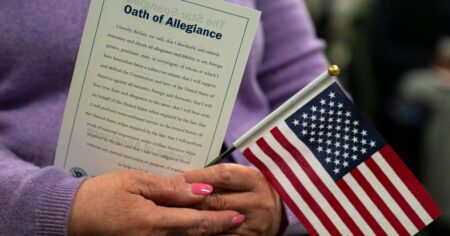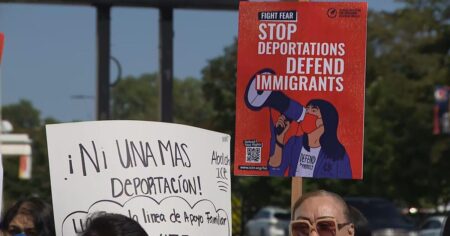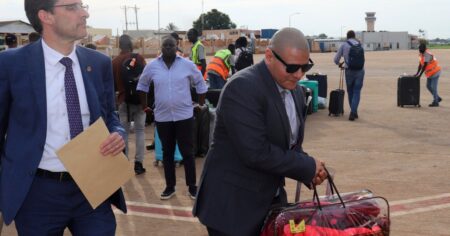A federal immigration judge has ordered Mahmoud Khalil — a former Columbia University graduate student linked to pro-Palestinian protests — to be deported to either Algeria or Syria.
The ruling was issued last week, but it first came to light in court papers filed by Khalil’s lawyers on Wednesday as part of his lawsuit against the government. A green card holder, Khalil alleges the Trump administration detained him for months and sought to deport him as part of a wider policy of punishing foreign students for protesting Israel’s conduct in its war against Hamas. The Trump administration has accused him of “hateful behavior and rhetoric.”
On Friday, Louisiana-based immigration Judge Jamee Comans denied Khalil’s motion for a waiver preventing his removal from the U.S. because he allegedly misrepresented his background on his green card paperwork. Comans once again ordered him to be deported to either Algeria, where Khalil is a citizen, or Syria, where he was born.
Khalil now has 30 days to appeal Comans’ ruling to a Justice Department body called the Board of Immigration Appeals, and if his appeal is rejected, he will lose his green card status and be ordered to leave the country, his lawyers said in a letter Wednesday to U.S. District Judge Michael Farbiarz.
Lawyers for Khalil told Farbiarz they plan on amending his lawsuit against the administration in light of “these latest, highly unusual developments.” In a statement Wednesday, Khalil’s legal team argued the immigration judge “rushed to a decision without providing a hearing on the evidence as due process requires, engaging in multiple procedural irregularities.”
“It is no surprise that the Trump administration continues to retaliate against me for my exercise of free speech,” Khalil said in the statement. “Their latest attempt, through a kangaroo immigration court, exposes their true colors once again.”
CBS News has reached out to the Department of Homeland Security for comment.
The legal fight between Khalil and the federal government stretches back to March, when he was first detained by immigration agents in New York. Khalil is one of several international students who were detained due to their links to pro-Palestinian campus activism, which the Trump administration alleges is riddled with antisemitism — a charge the protesters deny.
Initially, the Trump administration argued Khalil could be deported under a federal law allowing noncitizens to be removed if the Secretary of State determines that their presence poses “adverse foreign policy consequences.”
In June, Farbiarz blocked the government from deporting Khalil on foreign policy grounds, finding his “career and reputation are being damaged and his speech is being chilled.” A month later, Khalil was released from immigration detention in Louisiana.
But his immigration case continued under a separate allegation leveled by the Trump administration. In addition to the foreign policy claims, the government had accused Khalil of leaving out details about his past associations on his immigration paperwork, including membership in a United Nations agency that works with Palestinians and his “continuing employment” at the British Embassy in Lebanon.
In last week’s ruling, Comans found that Khalil was not legally entitled to a waiver of deportation on those allegations. The immigration judge also said that Khalil shouldn’t get discretion from the court because of the “gravity of his conduct.” She called Khalil an intelligent, ivy-league educated individual” who should’ve known disclosure was required.
“This Court finds that Respondent’s lack of candor on his [immigration forms] was not an oversight by an uninformed, uneducated applicant,” the judge wrote. “Rather, this Court finds that Respondent willfully misrepresented material fact(s) for the sole purpose of circumventing the immigration process and reducing the likelihood his application would be denied.”
Khalil has denied making misrepresentations, saying he was not a member of the U.N. agency, but was instead an unpaid intern through Columbia. He has also stated that he stopped working at the British Embassy in Beirut in 2022, despite the government’s claims that he continued working there after that.
In a statement Wednesday, his lawyers called the claims “baseless” and “pretextual.”
Read the full article here




